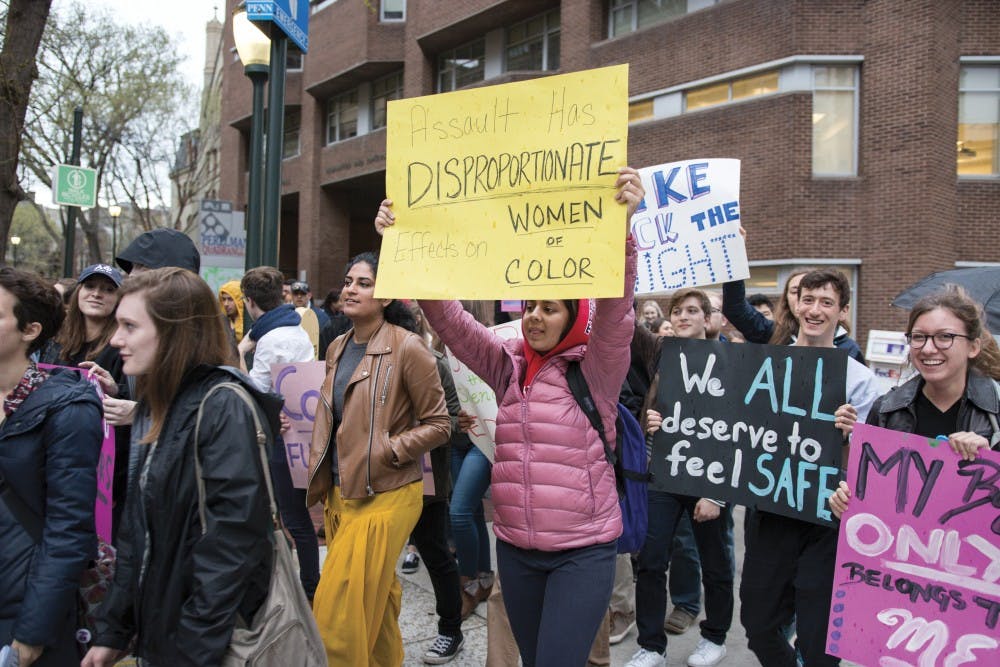This summer, the University altered two of its policies relating to sexual violence.
The University announced in May that students who violate the University’s academic integrity, student conduct or sexual violence codes will be barred from receiving academic honors.
Provost Vincent Price and Vice Provost for Education Beth Winkelstein announced that students who receives a sanction of probation or a greater offense for breaking the Code of Academic Integrity, the Code of Student Conduct or the Sexual Violence, Relationship Violence and Stalking Policy would be ineligible for Latin graduation honors or Dean’s List citations.
The University also revised the wording of its sexual violence and harassment policies on July 1 to include a wider range of sexual orientations and clarify procedures for reporting incidents. These changes included sections about procedures for formal complaints, complaints against students visiting Penn, anti-retaliation provisions and reporting and monitoring sexual violence.
Administration’s changes to the school’s academic code actually allows “more students to not be penalized” when they violate Penn’s academic integrity code, according to Director of the Office of Student Conduct Julie Lyzinski Nettleton.
“It makes it so that lower level violations of the Code of Academic Integrity keep an educational only component,” Nettleton said. “The University is saying that we acknowledge that this is your first time, it’s a lower level violation and we want you to step back, think about your actions and change how you’re going to approach your academic career moving forward.”
Megan Yan, Chair of the Penn Association for Gender Equity and the former business manager of The Daily Pennsylvanian, said that while the policy changes were a positive step forward for sexual violence justice at Penn, there was still a long way to go.
“Overall, we think any change in policy that holds perpetrators of sexual assault and violations of the policy more accountable is positive,” Yan said. “But we’re more focused on making sure that violations of the policy are being reported, that survivors feel safe and comfortable reporting violations and that their experiences doing so are positive.”
Students receive graduation honors based on their cumulative GPA at the end of college — summa cum laude, magna cum laude and cum laude, from highest to lowest ranking.
Students with a 3.7 or higher combined GPA during the full academic year can also receive a Dean’s List citation on their transcripts at the end of each academic year.
If found to have violated any of the University’s three codes, a student who already earned Latin honors would still have their honors removed. A student’s Dean’s List citation would only be taken off for the academic year during which the student violated the codes.
The two policy changes were made based on a recommendation by the Council of Undergraduate Deans, according to Price and Winkelstein’s message posted on the Almanac.
“It’s really a philosophical shift in terms of viewing the conduct process as part of the educational experience,” Nettleton said. “If a student moves forward by changing their behavior, they get to preserve what they’ve worked hard towards. Personally I think it’s great ... we believe that there are natural consequences for one’s actions, and our primary goal is that consequences engage students in a learning experience, which I think is at the heart of this shift in these policies.”









